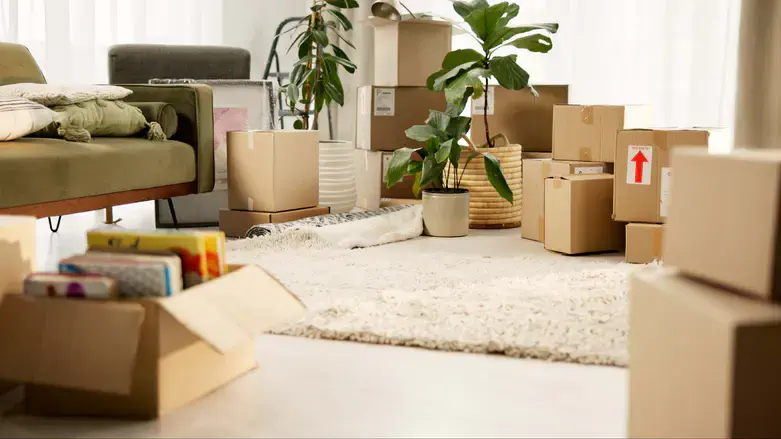
You’re not the only one. As of 2024, Israel has welcomed over 31,000 new immigrants from more than 100 countries, even in the midst of the war.
But between the paperwork, the goodbyes, and all the decisions you have to make, there’s one big logistical issue that sneaks up on almost everyone: What do I do with all my stuff?
Because while moving to Israel is about new beginnings, it also means figuring out what to do with the life you're leaving behind - at least for now.
The Practical Side Of Making Aliyah
Moving countries isn’t just about buying a one-way ticket and learning some basic Hebrew, it’s about setting yourself up for a new life in this wonderful country.
Whether you're coming from London, New York, Paris or Johannesburg, there’s a long list of things to sort before you go.
Some of the basics that you might be thinking about include:
- Opening an Israeli bank account (you can even start this before you land here)
- Choosing where you’re going to live (city? kibbutz? somewhere in between?)
- Getting your documents in order - medical records, diplomas, driver's license
- Setting up health insurance and figuring out your rights as a new oleh/olah
- Oh, and yes - learn a little Hebrew. Ulpan is your new best friend.
And then there’s your stuff.
What should you do with your furniture? Your boxes of books? The winter clothes you won’t need in Eilat, but definitely will in Jerusalem? The childhood toys you can’t part with just yet?
Moving abroad can feel exciting, but it’s important to be organised, especially when it comes to what you’re leaving behind.
What Are Your Options?
When it comes to your stuff, you have a few options. You could:
1. Ship It All
If you're planning to move for the long run and have furniture worth bringing, shipping might make sense. Just know it can be pricey and slow - and Israeli apartments aren’t always known for their spacious layouts.
2. Sell or Donate
Moving is the perfect excuse to declutter. If you haven’t touched something in years, maybe it’s time to give it a new home. Facebook Marketplace, charity shops, and local Jewish community groups can help.
3. Leave It With Friends or Family
This sounds easy, but can get messy. People move, things get lost, and it’s a big favour ask. If you have someone willing to help, that’s great - but try and have a plan to get your items out of their home in the near future.
4. Put It Into Storage
This is where things get easier. Storing your things back home, at least in the short term, gives you space (literally and mentally) to figure things out once you’ve landed.
Why Storage Just Works
Moving is a lot of work. You don’t need the added stress of deciding what to do with every single item before you go.
That’s where self-storage comes in. It gives you a middle ground. You can bring what you need, store the “maybes,” and come back to it when life settles down.
And you wouldn’t be the only one doing this. Aliyah is booming again.
From January to August 2024 alone, 23,183 new olim arrived - and that includes 433 from the UK (a 55% increase from last year) and 2,202 from the US.
The dream is alive and well - but so is the logistical juggling act of getting there.
Picking the Right Storage Option
If you’re based in the UK, you’re in luck - there are some really clever, easy ways to store your things these days…without breaking the back!
You don’t need to rent a huge unit or schlep everything into a van yourself. Some companies will let you store by the box, so you only pay for what you actually need. The best part? They pick up everything from your front door.
And if you ever need something shipped to you in Israel later? That’s usually doable too.
Start Fresh, Without Letting Go of Everything
Aliyah is all about new chapters. But that doesn’t mean erasing the old ones.
You don’t have to make all the decisions right now. You don’t have to know exactly what life in Israel will look like before you get there. And you definitely don’t have to say goodbye to everything you’ve collected over the years.
Put some things in storage. Give yourself space to breathe. Settle in, see how life unfolds, and revisit the rest later.
Because starting fresh doesn’t mean leaving everything behind. It just means being smart about what you carry with you - and what can wait a little longer.

